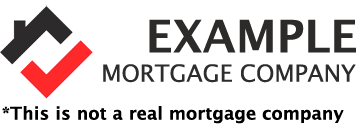

Amidst escalating home prices and rising interest rates, a notable trend is gaining traction among Gen Z and millennial homebuyers: "house hacking." This innovative strategy involves renting out a part or the entirety of a home to generate supplementary income, acting as a financial buffer in a challenging housing market.
Recent data from Zillow reveals that nearly 4 in 10 recent homebuyers consider house hacking to be a crucial opportunity, marking an eight-percentage-point increase over the past two years. Younger generations exhibit even greater enthusiasm, with 55% of millennials and 51% of Gen Z expressing positive views on this practice.
The driving force behind this housing hack is clear – affordability constraints. In October 2023, the median sale price for a house in the U.S. reached $413,874, a 3.5% annual increase. Concurrently, the average rate for 30-year mortgages hit 8%, marking the highest level in 23 years. According to Redfin, the average salary required to afford that median-priced house in the U.S. is $114,62.7
Daryl Fairweather, chief economist at Redfin highlights the challenges faced by potential homebuyers: "In many places, you need to earn six figures to afford a starter home, so it makes sense for young people who are seeing how expensive homeownership is to want options."
Enter house hacking ...
By renting out a part of their newly acquired properties, millennials and Gen Z buyers can alleviate the financial strain of higher home costs. However, this strategy is not without its considerations.
While the additional income from house hacking can turn homeownership dreams into reality, it's crucial for potential buyers to be aware of certain factors. For example, banks won't consider potential rental income when assessing a buyer's eligibility for financing.
Furthermore, the window of opportunity for house hacking may be closing. In select markets, ongoing construction efforts are focusing on the development of new apartment complexes, specifically emphasizing the creation of smaller one-bedroom units. This surge in construction activity has resulted in a notable expansion of the overall rental inventory. Statistical evidence reveals a moderation in rental market inflation, leading to an increase in the rental vacancy rate to 6.6% during the third quarter.
However, despite these developments, the United States continues to confront a substantial shortage of affordable housing options. This challenge stems from a history of inadequate construction over the past decade and the reluctance of current homeowners to relinquish their exceptionally low mortgage interest rates. For those willing to house hack, there remains a reliable source of income due to the persistent demand for housing.
For potential house hackers, research and preparation are key. Determining the rental rates for your type of home, consulting with rental managers, and understanding local ordinances and homeowner association regulations are crucial steps.
Overall the rise of house hacking among Gen Z and millennials reflects a creative response to the challenges posed by the current housing market. As these generations seek alternative paths to homeownership, the practice offers a financial bridge, even in the face of evolving rental dynamics and market fluctuations.
